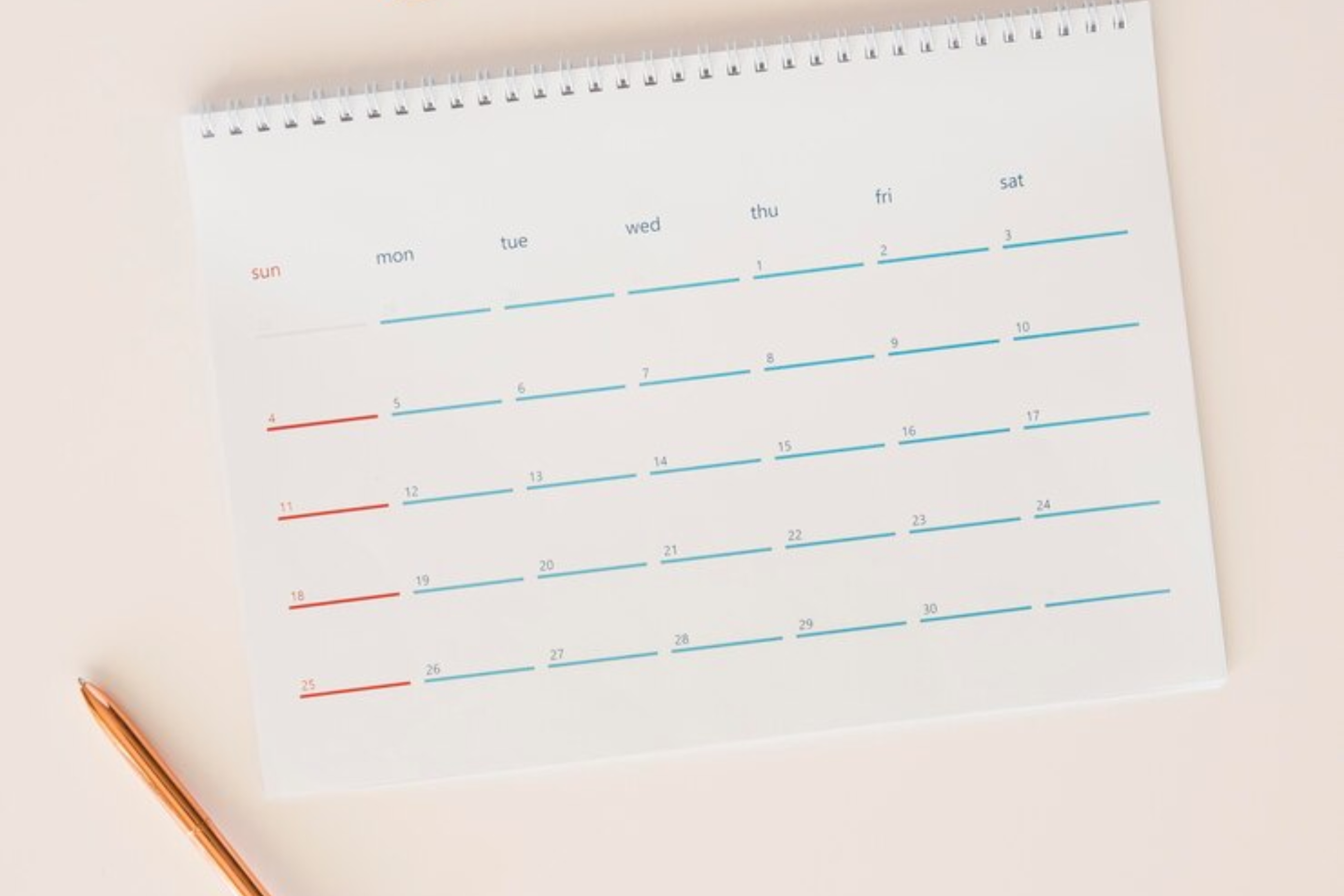Early Decision for College: What to Know in 2025
Are you considering applying to college through an early decision program? This comprehensive guide covers everything you need to know about early decision programs, including the benefits and drawbacks, the application process, and tips for making the most of this option.
Posted June 13, 2025

Table of Contents
Free Event

Featuring Indrani S.
How To Write Outstanding Law School Application Essays
Starting Tuesday, September 2
11:30 PM UTC · 60 minutes

Featuring Indrani S.
Choosing the right college admission plan is one of the most critical decisions for students embarking on their higher education journey. Early Decision stands out as a unique and impactful option, offering advantages such as early notifications and potentially higher acceptance rates. However, it also comes with specific challenges, including binding commitments and financial considerations. This comprehensive guide breaks down everything you need to know about applying Early Decision to help you make an informed choice.
What is an Early Decision Program (EDP)?
Early Decision Programs, also known as EDPs, are college application programs that allow students to apply to a college or university before the regular decision deadline. However, the key difference is that when you apply for an early admission decision through EDP, you are legally binding yourself to attend that institution if you are accepted. It is essentially a contract between you and the college or university, stating that you will attend if you are admitted.
One of the benefits of applying through an EDP is that it can increase your chances of being accepted to other colleges. This is because colleges and universities want to fill a certain number of spots with students who have committed to attending. Additionally, applying through EDP can also help you receive a financial aid package that better meets your needs, as colleges and universities may be more willing to offer generous aid packages to students who have committed to attending.
It is important to note that while applying through early means of EDP can have its advantages, it is not the right choice for everyone. If you are not completely sure that a particular college or university is the right fit for you, it may be better to wait and apply through the regular decision process. Additionally, if you need to compare financial aid packages from multiple institutions before making a decision, EDP may not be the best option for you.
How EDPs Differ from Other Decision Programs
| Application Type | Binding? | Deadline | Notification Timeline |
|---|---|---|---|
| Early Decision (ED) | Yes | Mid-October to Early November | December |
| Early Action (EA) | No | Similar to Early Decision | December/January |
| Regular Decision (RD) | No | January to February | March/April |
Early Decision Programs (ED)
Early Decision programs are unique in their binding nature. Students applying through ED must commit to attending the school if accepted. This exclusivity of the ed process means you can only apply to one institution under ED, signaling that it is your top choice. The deadline for ED applications typically falls in mid-October to early November, with decisions being released by December.
Early Action Programs (EA)
Unlike ED, Early Action programs allow students to apply early—typically by the same deadline as ED—but without the obligation to attend if accepted. Decisions are usually released between December and January, giving students an early idea of where they stand without restricting their options.
Regular Decision Programs (RD)
Regular Decision provides the most flexibility, with application deadlines between January and February and notifications arriving in March or April. Unlike ED and EA, students applying under RD have the luxury of time to refine their applications, explore multiple schools, and make a final decision by May 1st.
Pros and Cons of Early Decision (ED) Programs
| Aspect | Pros | Cons |
|---|---|---|
| Acceptance Rates | Higher acceptance rates due to colleges valuing demonstrated commitment. | It is not specific, but competition can still be tough for highly selective schools. |
| Notification Timeline | Early notification (typically by December), reduces uncertainty and allows more time to plan. | Rejection can add stress by requiring a rush to complete regular decision applications. |
| Demonstrated Interest | Signals strong interest in the institution, positively influencing admissions committees. | May not benefit students unsure about their first-choice school. |
| Ability to Plan Early | Decisions made earlier allow for better preparation of housing, finances, and other aspects of transition. | Limits ability to compare financial aid packages or scholarship offers from other schools. |
| Application Scope | Focus on a single top-choice school, potentially increasing chances of admission. | Restricts the opportunity to apply to multiple schools, narrowing overall options. |
| Commitment | Shows a high level of commitment, often seen as a strong positive by admissions committees. | Binding nature requires attendance if accepted, limiting flexibility to consider other colleges or finances. |
| Early Decision Commitment | Ensures a spot at the college if accepted, providing certainty. | Requires a firm financial commitment, limiting options if financial aid is insufficient. |
| Timeline Pressure | Enables decisions to be made sooner, reducing overall waiting time. | Early deadlines can pressure students to finalize decisions before fully exploring all available options. |
How to Determine if EDP is Right for You
Reflect on Your Priorities
- Academic Fit: Does the school offer the programs and opportunities you’re seeking?
- Campus Culture: Have you visited the campus or researched enough to ensure it’s the right environment for you?
- Long-Term Goals: Will attending this school align with your future career and educational aspirations?
Assess Your Financial Situation
- Financial Aid Needs: Are you prepared to commit to this school if the financial aid package isn’t as high as expected?
- Scholarship Opportunities: Research whether the school offers merit-based or need-based aid and how these fit your financial goals.
- Net Price Calculator: Use the college’s calculator to estimate the total cost of attendance.
Evaluate Your Readiness
- Emotional Preparedness: Are you ready to make a binding decision early in your senior year?
- Academic Strength: Does your GPA, test scores, and overall application make you a competitive candidate?
- Application Completeness: Do you have the necessary essays, recommendation letters, and materials ready for submission by the deadline?
Seek Guidance
- School Counselor: Meet with your counselor to discuss whether Early Decision aligns with your academic and personal goals.
- Parents or Guardians: Ensure your family is supportive of the decision and understands the financial commitment.
- College Alumni or Current Students: Gain insights from individuals who have attended the school to understand their college experiences.
Use a Decision Checklist
- I have identified my clear first-choice college.
- I am fully confident in my ability to commit to this school.
- I understand the financial implications and have researched aid options.
- I meet or exceed the academic profile of admitted Early Decision students.
If you can confidently answer “yes” to these points, Early Decision may be a great choice for you. If not, applying Early Action or Regular Decision might provide more flexibility and options.
Access our Free Library
Access videos, templates, and expert examples from Leland's top coaches to level up your applications. Explore essays, resumes, and more.
How EDP Affects Your Admission and Financial Aid
If you receive an acceptance letter through EDP, you will still be considered for financial aid and scholarships as you may with a regular decision admission. However, keep in mind that some institutions may offer a smaller financial aid package to Early Decision applicants, as they know the students have committed to attending that school assuming a satisfactory financial aid package is offered. It's important to understand the financial aid and scholarship implications before applying to several schools through EDP.
Strategies for Financial Planning
- Research financial aid policies – Examine the college’s approach to need-based and merit-based aid.
- Utilize net price calculators – Most colleges provide tools to estimate costs and financial aid.
- Discuss with counselors – Seek guidance from school counselors to assess affordability.
5 Expert Tips for Preparing Your EDP Application
Analyze ED Acceptance Trends and Applicant Profiles
Study historical early decision and early acceptance, rates at your target school and dig deeper into the specifics of successful applicant pools. Check for disclosed data on majors, geographic diversity, and extracurricular profiles of admitted students. For instance, if a college prioritizes STEM applicants or recruits from underrepresented regions, tailor your application narrative to highlight relevant strengths. Use tools like the Common Data Set (CDS) or forums where alumni discuss admissions trends to gather granular insights.
Write a Targeted and Authentic “Why Us?” Essay
Admissions committees evaluate early decision applications with an eye on how well candidates fit the institution’s mission and culture. Avoid generic responses. Instead, emphasize unique academic programs, faculty research, or traditions that connect directly with your goals. For example, mention a specific professor whose work aligns with your career aspirations or a student organization you’re excited to join. Reference any campus visits, webinars, or conversations with current students to demonstrate deep engagement and commitment.
Address Financial Aid Early in the Process
Since early decision limits the ability to compare financial aid packages, prepare proactively. Use the Net Price Calculator (NPC) to estimate costs and contact the financial aid office for clarity on merit aid, need-based financial aid, and policies for ED applicants. Ask about external scholarships and how they might affect your package. If finances are a major consideration, have a backup plan with pre-approved external funding options like private scholarships or family loans.
Show Sustained Interest Through Active Engagement
Early decision applicants need to demonstrate a strong and ongoing commitment to their top-choice school. Attend virtual or in-person admissions events, schedule one-on-one meetings with representatives, and participate in campus tours. Follow the college on social media and interact with their posts. Mention these specific touchpoints in your application, such as, “After attending the College’s engineering workshop, I realized how its hands-on approach aligns perfectly with my career goals.” This level of detail shows authentic interest.
Prepare a Contingency Plan for Deferred or Rejected Applications
While ED is a binding commitment if accepted, it’s critical to plan for other outcomes. Have regular decision applications ready for submission by the ED deadline to avoid last-minute stress if deferred or rejected. Use the time before Regular deadlines to refine essays and improve your application based on ED insights. If deferred, send an update letter with any new achievements or clarifications to strengthen your case. Don’t wait until mid-December—prepare proactively to keep your options open.
Common Mistakes to Avoid When Applying Through EDP

1. Not Researching the Particular School Thoroughly
- Applying for early decision means committing to attend the college if accepted. Early decision colleges expect applicants to demonstrate a clear understanding of their programs, values, and campus culture. Failure to research the school’s academic offerings, financial aid packages, or campus resources may lead to mismatched expectations.
- Early decision candidates should use tools like net price calculators to assess need-based financial aid and compare financial aid packages if applicable.
2. Rushing or Procrastinating with Early Decision Applications
- Early decision deadlines typically fall in mid-October or early November. Many colleges also offer an Early Decision II option in early January for students who miss the first deadline. Applying early doesn’t mean rushing. Take time to ensure your early decision applications are complete, accurate, and reflect your strongest work.
- Missing critical elements like recommendation letters or standardized test scores can weaken your application. Work with your school counselor early in your senior year to plan ahead.
3. Ignoring Financial Aid Details
- Early decision is a binding commitment and accepted applicants are expected to attend the college even if financial aid offers don’t meet their expectations. Early decision applicants should fully understand their financial needs and demonstrate financial requirements before committing.
- Unlike regular decision applicants, early decision applicants cannot compare financial aid offers from multiple schools. To avoid surprises, contact the financial aid office of your first-choice college to discuss options for need-based financial aid or any financial reasons that could prevent you from attending.
4. Applying to Several Colleges Without a Clear Strategy
- Early decision programs are binding and allow students to apply to only one college under ED rules. Applying early decisions while also submitting applications to several colleges under regular decision or early action can create conflicts if you receive multiple admissions offers.
- Students deferred as early decision applicants should have regular decision applications ready for other schools to avoid missing out on additional opportunities.
5. Mismanaging Communication with the School Counselor
- School counselors play a critical role in the admissions process, especially for early-decision candidates. Failing to communicate with your counselor about your intent to apply to ED can result in delays with transcripts, recommendations, or other documents.
- Be transparent about your college's early decision plans and ask for advice on how to navigate the binding contract involved with early decision commitments.
Alternatives to Early Decision Programs
- Early Action: Similar timeline to Early Decision but without the binding commitment.
- Regular Decision: Provides more time for applications and decision-making.
- Rolling Admission: Offers flexibility, with decisions made as applications are received.
| Feature | Early Decision | Early Action | Regular Decision |
|---|---|---|---|
| Binding Commitment | Yes | No | No |
| Application Deadline | October/November | October/November | January/February |
| Decision Notification | December | December/January | March/April |
Key Takeaways
- Research early decision acceptance rates and applicant profiles to align your application with what colleges prioritize
- Focus your Why Us essay on specific academic programs and experiences to show genuine interest
- Plan for financial aid by using net price calculators and consulting with financial aid offices
- Show consistent engagement by attending events and connecting with admissions representatives
- Be prepared with backup applications in case of deferral or rejection
Get Expert Guidance for Your College Applications
Work one-on-one with experienced college admissions coaches to craft standout applications, navigate Early Decision strategies, and maximize your chances of getting into your dream school.
Frequently Asked Questions
What is the difference between Early Decision and Early Action
- Early Decision is binding, meaning you must attend if accepted, while Early Action is non-binding, allowing you to apply early without committing. Use Early Action if you want to apply to multiple schools early and compare financial aid offers.
Can I apply to multiple colleges and schools under Early Decision
- No, Early Decision is exclusive to one college. However, you can apply to other schools under Regular Decision or Early Action to keep options open in case you are deferred applicants or denied.
What happens if I can’t afford the financial aid package offered
- Contact the financial aid office immediately to discuss your concerns. If the package doesn’t meet demonstrated financial need, many colleges allow you to decline the offer. Always use the school’s Net Price Calculator before applying ED to estimate costs.
Is Early Decision right for everyone?
- Early Decision is ideal if you have a clear first-choice college, have researched the school thoroughly, and are confident about meeting financial and academic commitments. If financial flexibility is critical, Regular Decisions or Early Action may be better options.
How can I increase my chances of success in Early Decision
- Engage with the school early by attending events and reaching out to admissions representatives. Write a detailed “Why Us” essay that highlights specific programs and connections to your goals. Use every opportunity to demonstrate your interest and commitment.
Related Resources
Explore these resources to maximize your chances and strengthen every part of your college application.
- What Looks Good on College Applications? 6 Tips to Make Your Application Stand Out
- How to Write a College Application Resume
- 30+ Colleges With Late Application Deadlines
- The Top 40 College Scholarships
- 3 Expert Tips for Applying to College
- 5 Tips for Making the Most of Your College Years
- Top Questions to Ask a College Admissions Officer
- Top 25 Free Resources for Your College Application
- A Great Admissions Coach Can Be Life-Changing – Here’s How











